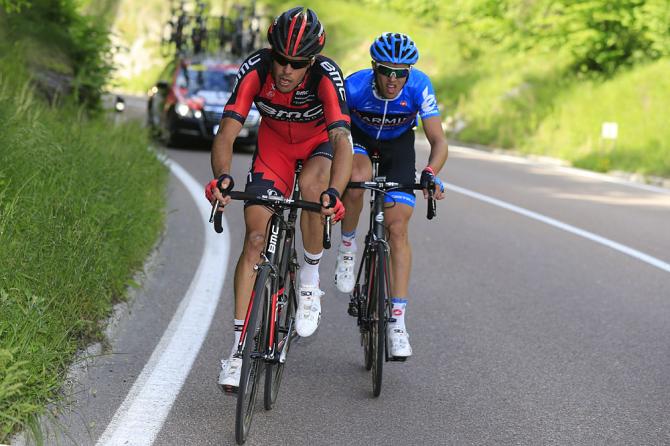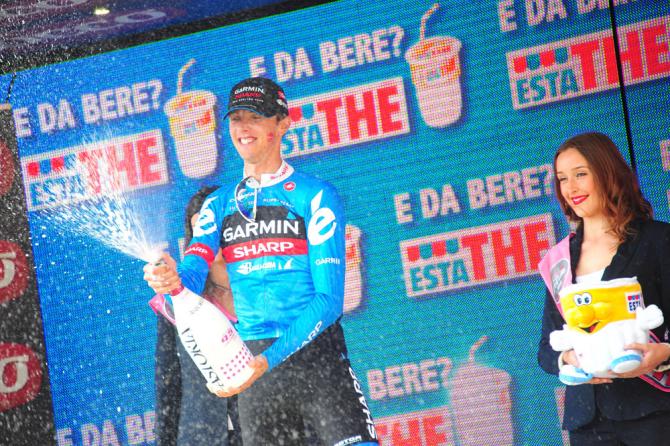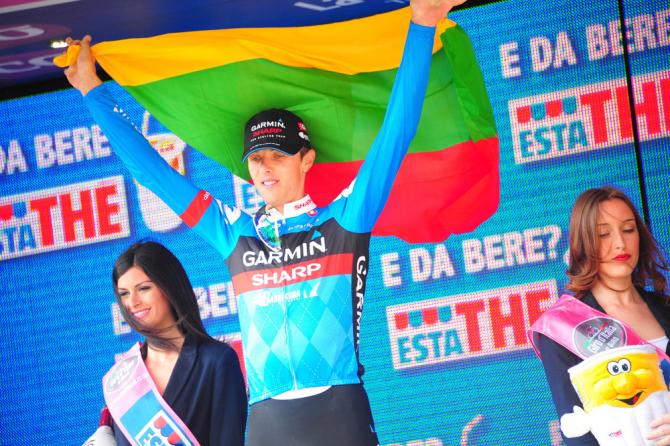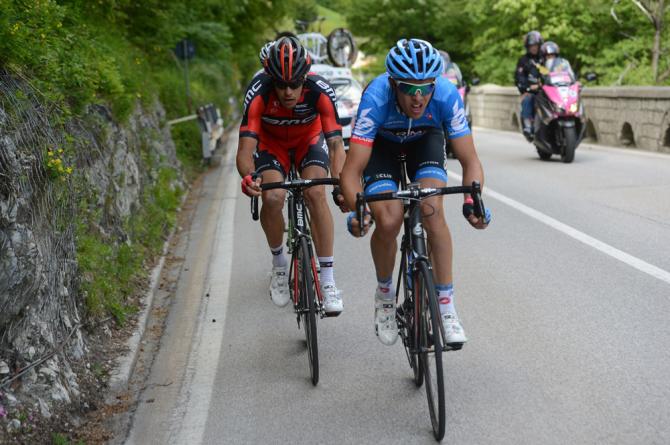Navardauskas provides consolation prize for Garmin-Sharp
Lithuanian wins after Hesjedal’s Giro challenge collapses




Twenty-four hours after his leader Ryder Hesjedal’s dreams of defending his pink jersey were dashed, Ramunas Navardauskas helped to put a different slant on Garmin-Sharp’s Giro d’Italia by soloing to victory on stage 11.
Hesjedal finished over twenty minutes down at Altopiano del Montasio on Monday and his travails saw Garmin-Sharp forced to radically rethink their approach overnight. Rather than performing his usual duties of guarding his Canadian leader in the peloton, Navardauskas was given the freedom to chase the stage victory.
“Ryder had a bad day yesterday, but that can happen to anybody,” Navardauskas said. “Today we had different tactics and it was our plan to try and get in the break. The race isn’t over for us, and we want to win more stages.”
Coming after the first mountaintop finish of the Giro, with tired legs aplenty in the gruppo, and with the second category Sella Campigotto en route to weed out the fast men, Wednesday’s stage had the ideal conditions for the germination of a breakaway, even if it took over 50 kilometres for the move to take shape and blossom.
“Today was the ideal course for me,” said Navardauskas, who took his first professional victory at the Tour de Romandie in the build-up to the Giro. “It was too hard for the sprinters but the climbs weren’t too hard for me.
“Everyone saw that a break would probably go away today, and that's why it took so long for the group to go clear. On top of that, the start of the stage was downhill, but once we finally started to go uphill, we were able to force a break. The highest guy in the GC was something like 10 minutes down, so nobody chased, and I think that was good for the GC guys to have a bit of recovery for the big days ahead.”
Navardauskas held his fire when the 20-man move’s unity first began to fragment on the slopes of the Sella Campigotto and he resisted the temptation to follow fellow strongman Patrick Gretsch’s (Argos-Shimano) raid on the way down the climb.
Get The Leadout Newsletter
The latest race content, interviews, features, reviews and expert buying guides, direct to your inbox!
25 kilometres from home, however, Navardauskas sensed his opportunity, setting off in pursuit with Daniel Oss (BMC). Gretsch was caught near Longarone and lost contact once Navardauskas forced the pace and the road began to climb again.
On the lower slopes of the final 7km-long haul towards the finish at Vajont, Navardauskas began testing Oss’ resistance with two long accelerations. Sensing that the Italian was straining to come up with a response, Navardauskas pressed clear alone with 5 kilometres still to race.
“Until the last climb we were riding for each other,” Navardauskas said. “Then I made a small acceleration to see how he was. When I did that a second time, I could see that I was stronger so I made a bigger acceleration, and then I just tried to keep my tempo after that.”
With 1:08 in hand on Oss by the summit, Navardauskas had time to sit up and savour his victory as he crossed the line. It was the Lithuanian strongman’s second Giro success in as many years, after he spent two days in the maglia rosa in 2012 and then went on to play an important role in helping Hesjedal carry the precious tunic to Milan.
“It’s hard to compare them both,” Navardauskas said. “Last year was very special and I enjoyed wearing the maglia rosa. But winning a stage is something different again. You inscribe your name forever more in the palmares of the Giro d’Italia.”

Barry Ryan was Head of Features at Cyclingnews. He has covered professional cycling since 2010, reporting from the Tour de France, Giro d’Italia and events from Argentina to Japan. His writing has appeared in The Independent, Procycling and Cycling Plus. He is the author of The Ascent: Sean Kelly, Stephen Roche and the Rise of Irish Cycling’s Golden Generation, published by Gill Books.